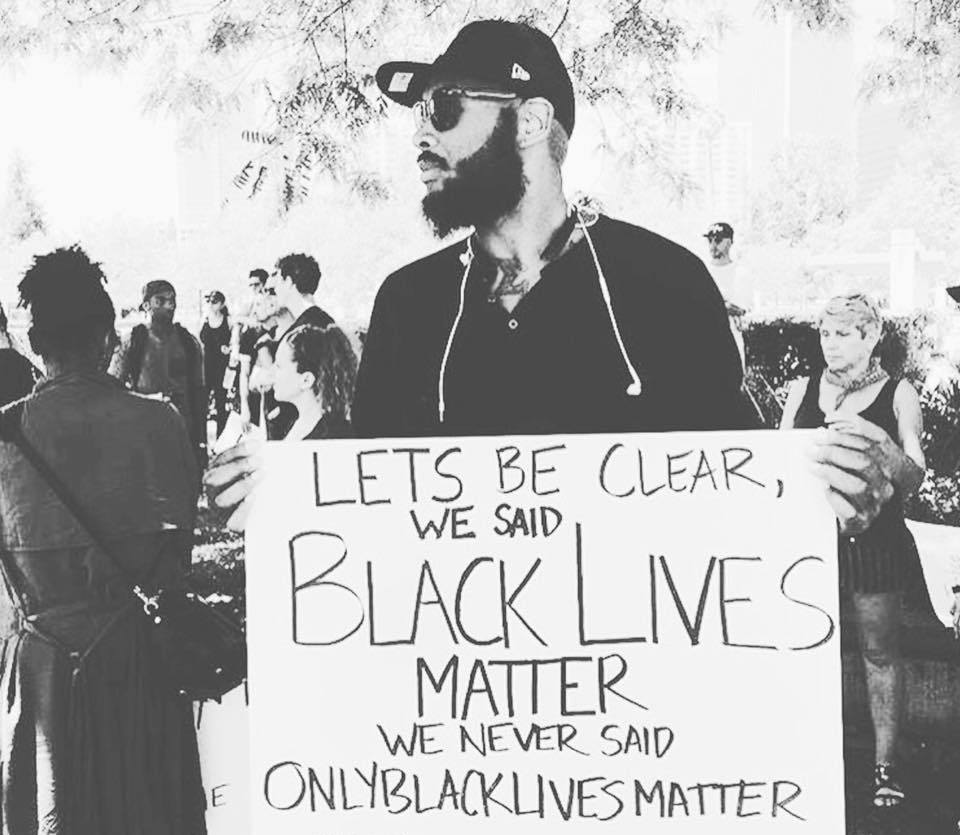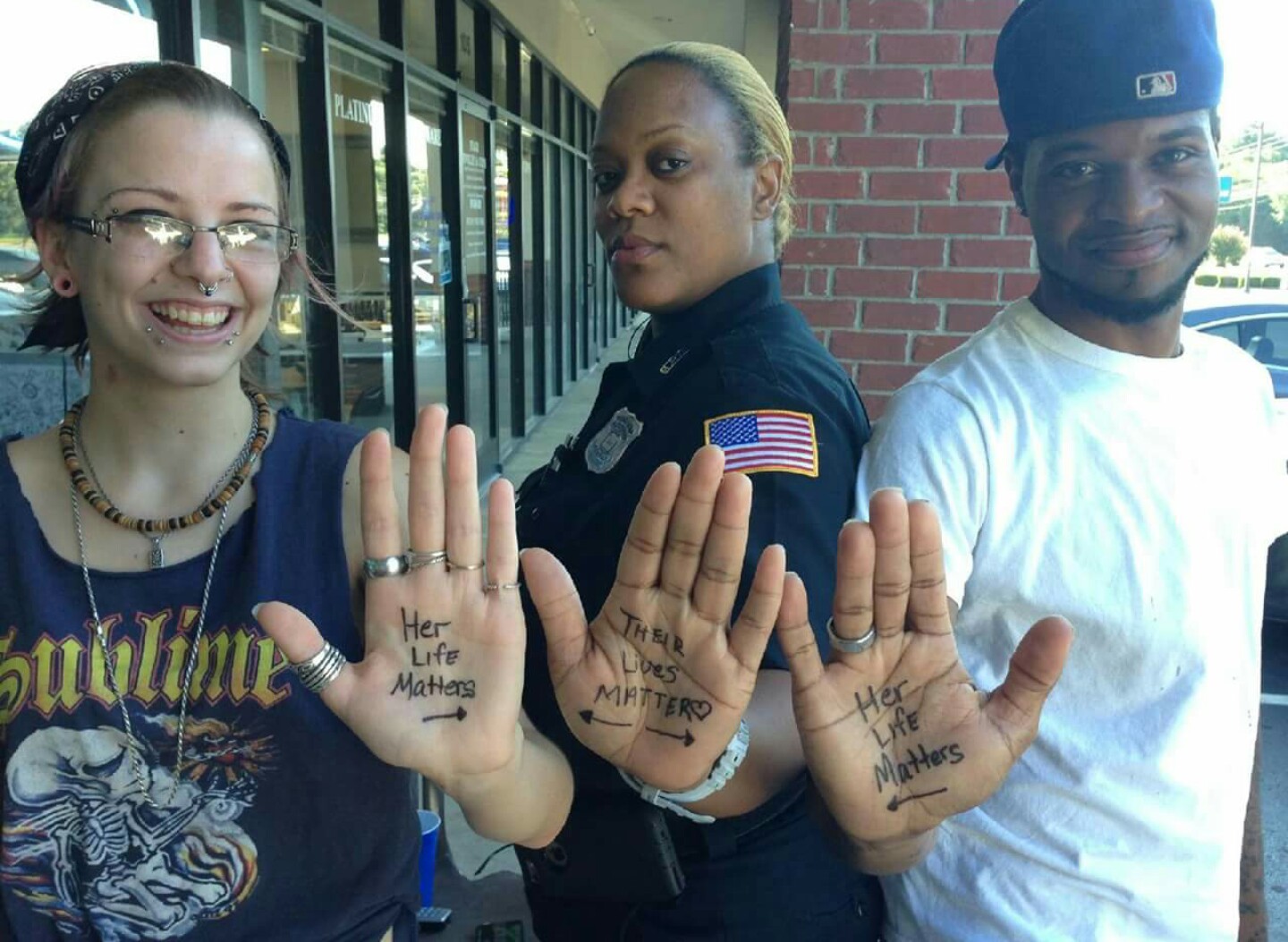You should be able to describe your opposition’s stance in a way they would agree with. If you can’t do that, do you really understand what they’re saying?
I’m sure I’m not the only one who has seen this argument ad nauseum.
“Black lives matter.”
“All lives matter.”
“Why do you refuse to acknowledge discrimination againt black people?”
“Why don’t you care when others are hurt? Why don’t you care about police officers’ lives?”
Etc.
As best I can tell, this infinite argument stems from two factors:
- Allowing the extremists to represent our opposition.
- Telling other people what they think and what they mean.
These are both mistakes. We make them often in all kinds of debates, probably more often the more heated the debate is. But guys, I wish we’d stop.
I don’t doubt that there are people who are indifferent to or even celebrate an LEO’s death or a black person’s death. But I don’t think either of those stances represents the majority of either side. And it would be helpful if, when someone says something you think has an ambiguous meaning, instead of assuming they’re using the most extreme, awful meaning, you maybe just asked them to clarify.
So when someone says “Black lives matter,” instead of assuming they mean “Only Black lives matter,” either give them the benefit of the doubt (they mean “Hey, black lives matter too”), or at least ask them what they mean.
And when someone says “All lives matter,” instead of assuming they’re just trying really hard to ignore the problems people of color face, either give them the benefit of the doubt (they mean “I care about all the lives involved in this issue” and/or “I’ve misunderstood what you mean by ‘black lives matter’”), or at least ask them what they mean.
Please stop telling people what they mean when they use a phrase you don’t like. Stop telling them what they think and why they think it. On this topic and most others, assigning meaning usually means you’re getting it wrong and almost always means you’re probably not going to have a useful conversation.
Remember that the people we’re talking to—especially if we’re talking online with strangers or very casual FB friends—likely run in different social circles than us and are exposed to different ideas, news, blogs, talking points, etc. In particular they’re probably exposed more to the extreme voices from our side and less to the rational voices. I think that’s a pretty common phenomenon.
Sometimes it is really hard for me to stop and realize that the premises I find blindingly obvious are ideas the person I’m talking to may not have even heard before. It’s very easy to assume she’s starting from the same baseline assumptions I am and is just being difficult or mean. And hey, sometimes that is what’s happening.
But often–probably most of the time–it’s not. And man I’d love it if we could have more useful conversations about some very serious problems and less yelling at each other about what the other side thinks, feels, and wants. That would be a good start.


This is why, as someone who leans liberal, I still follow this blog. You folks are still able and interested in actually communicating. You have well reasoned arguments and are open to discussion with people of differing views.
Thanks!
I get the idea that we should follow the 7 habit principle which states:
“seek first to understand then to be understood video”.
The problem is that Black Lives Matter seems to be an extremist organization.
When someone says “Black Lives Matter” are they talking about the organization and the goals of BLM org or are they simply saying “Black Lives Matter”?
The BLM org has injected themselves so much into those words that it can be hard to tell whether someone is supporting the extremist organization or is simply making some other kind of statement.
I think it’s pretty case-by-case. If I had to guess, I’d say the majority of people saying “black lives matter” are simply trying to say “black lives matter too and it seems like segments of our society think otherwise and that concerns us.”
Personally, I found this description helpful to understanding what a lot of people are trying to express with the phrase “black lives matter” and why the response “all lives matter” bothers them.
Tyler – That is very encouraging, thanks. :)
I agree with the idea that the lives of black people matter. I disagree with most of the assertions and stated grievances of the #BlackLivesMatter movement. http://blacklivesmatter.com/about/
That which requires some to disregard the rule of law, or equal standards, or to accept lies as reality, or to perpetuate a continuous grievance class, has little change of complete adoption.